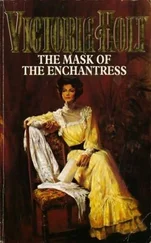Виктория Холт - The Vow on the Heron
Здесь есть возможность читать онлайн «Виктория Холт - The Vow on the Heron» весь текст электронной книги совершенно бесплатно (целиком полную версию без сокращений). В некоторых случаях можно слушать аудио, скачать через торрент в формате fb2 и присутствует краткое содержание. Жанр: Исторические любовные романы, на английском языке. Описание произведения, (предисловие) а так же отзывы посетителей доступны на портале библиотеки ЛибКат.
- Название:The Vow on the Heron
- Автор:
- Жанр:
- Год:неизвестен
- ISBN:нет данных
- Рейтинг книги:3 / 5. Голосов: 1
-
Избранное:Добавить в избранное
- Отзывы:
-
Ваша оценка:
- 60
- 1
- 2
- 3
- 4
- 5
The Vow on the Heron: краткое содержание, описание и аннотация
Предлагаем к чтению аннотацию, описание, краткое содержание или предисловие (зависит от того, что написал сам автор книги «The Vow on the Heron»). Если вы не нашли необходимую информацию о книге — напишите в комментариях, мы постараемся отыскать её.
The Vow on the Heron — читать онлайн бесплатно полную книгу (весь текст) целиком
Ниже представлен текст книги, разбитый по страницам. Система сохранения места последней прочитанной страницы, позволяет с удобством читать онлайн бесплатно книгу «The Vow on the Heron», без необходимости каждый раз заново искать на чём Вы остановились. Поставьте закладку, и сможете в любой момент перейти на страницу, на которой закончили чтение.
Интервал:
Закладка:
The answer was that the disease had been contracted through the Prince’s way of life—camping in damp places and foreign countries; and the nature of the disease was that it must inevitably grow worse as time passed.
‘I want you to insist that he returns to England,’ said Joan firmly.
The doctors agreed with her that a rest away from camps and long days in the saddle would be beneficial to the Prince.
Brought low by fever, mourning the death of his friend Chandos, realizing that his victories in France were slipping from English hands, he allowed Joan to make the arrangements for their departure.
He knew he was very sick. He had nightmares and the siege of Limoges figured largely in these. The town had been in English hands and had been treacherously given to the French by Jean de Cros, the Bishop of Limoges, whom he had counted his friend. What a rage he had been in then! Unable to mount his horse he was carried on a litter. He had sworn that he would take Limoges and woe betide the betrayer when he did.
Nor had he spared himself though the fever almost maddened him. The town was taken and the carnage was terrible. He himself ordered that it should be so. There should be no mercy, he had declared. Every living thing should be slaughtered. He had ridden through the town in a heavy four-wheeled cart because he was too ill to sit a horse. There was blood everywhere, corpses in heaps in every street; hot with fever he surveyed the slaughter. He felt defeated by circumstances which were too overwhelming to control.
The defaulting Bishop who had surrendered the town to the French was dragged before him. ‘I’ll have his head,’ he cried.
It was his brother, John of Gaunt, who begged him to consider that the Bishop was a man of the Church. True he had given the town to the French but it could have been to save slaughter. Edward must remember that the Church would be displeased and they could not afford to offend the Church.
By this time the Prince’s anger was spent. The hot blood which sent him crazy with the need for blood-letting had passed; he was shivering with the ague and longed for the quiet of his bed.
‘Take the Bishop,’ he said to his brother. ‘Do what you will.’
And he was carried back to Joan.
Do what you will. Yes, John would do what he would. John was an ambitious man who bitterly resented not having been born the eldest.
But I have two sons, mused the Prince. My little Edward to follow me and if aught should befall him there is also Richard.
So back to the peace of his home where he must continue to dream of Limoges—a blot on his shield of glory. He had once been a great Prince who did not need to resort to the killing of women and babies to prove his strength.
Joan and the doctors said: ‘You must go to England. You must rest awhile.’
At first he protested but he knew they were right. A warrior did not go into battle in a litter; he did not ride through a captured city in a four-wheeled cart.
So the preparations went on. As soon as this bout had subsided they would set out.
One morning just as the loading of the ships was nearing completion, Joan came to him in a state of great consternation. Young Edward was ill.
The doctors were not sure what ailed him but they were deeply concerned about the child’s condition.
It proved to be not without cause. Within a few days little Edward was dead.
This was the greatest blow of all.
Limoges, the rising of French power, the loss of that of England, the death of Chandos ... and now little Edward.
Joan was overcome by grief. This young Edward had been her pride; she had looked far ahead into the distant future and seen him mounting a throne. A long long time yet she had promised herself, but it would be one day.
And now ... he was gone.
But she was a woman of energetic ambition. She had after a long wait achieved marriage with the Prince of Wales. She had lost their beloved son. But there could be more, she promised herself. They already had little Richard. He was not quite four years old, a tall fair-haired boy with the Plantagenet looks.
The little boy known as Richard of Bordeaux because of his birthplace was now in direct line to the throne.
How changed was the Court. How everyone missed the presence of Queen Philippa which they had not noticed while she had been there.
In her place ruled the brazen hussy, sitting in the Queen’s chair, wearing the Queen’s jewels, wrapped in the royal mantle ,edged with ermine and supported in this by the King.
And most changed of all the King himself. No longer alert, no longer concerned with his country’s welfare, wanting only the comfort his strumpet could offer and letting everyone know it.
The Prince took in the situation at once. The King had changed. His mind had weakened; he had suffered some illness. This could not be the great commanding figure who had guided the country for more than thirty years.
The King received his son warmly, condoled with him on the death of young Edward and received his grandson Richard with affection.
But there was an absent-mindedness about him; and the Black Prince refused to meet Alice Perrers.
It soon became clear that if he persisted in this attitude he would not be welcome at Court.
He took the first opportunity of speaking to his sister Isabella who had been closer to the King than any of them.
Isabella was bewildered. It was no use trying to make their father see what he was doing. He was completely bewitched by the woman.
‘All through my life I have only had to ask to see him and I was allowed to,’ she explained. ‘But if that woman says I should not come to him, I am not allowed to.’
‘It must pass,’ said the Prince.
‘There is no sign of it. She grows more and more outrageous but still he keeps her with him. He cares only for her. I believe he is growing feeble-minded.’
‘It would seem so,’ said the Prince. ‘I shall not stay here nor will Joan to be treated thus by a woman of that kind. You will return to France doubtless.’
Isabella was silent. Those about her often said that she had become a changed woman since her marriage. The imperious Princess had strangely become a somewhat meek wife. The fact was that her youthful husband was less enamoured of her than she was of him, and he was quite content to leave her in England while he went to France. He was reluctant to take up arms against the French King and on the other hand he could scarcely do so against his father and brothers-in-law. The handsome Lord de Coucy was less pleased with his marriage than he had first thought he would be. The tragedy for Isabella was that each day she grew more and more in love with her husband.
This had had the effect of subduing her and of bringing a certain humility into her nature which had never been there before. She was devoted to her daughters and now that her father was less determined to please her she was discovering a greater affection for him than it had seemed she could be capable of.
‘It grieves me,’ she told her brother, ‘to see him thus. There have been times when I have thought of leaving the Court but somehow I feel I must stay. He needs one of us with him and I am the only daughter left and was always his favourite. No, Edward, I shall stay here at Court and I have even gone so far as to make myself agreeable to Alice Perrers. I cannot tell you what joy that gives our father. Moreover it gives me an opportunity to keep my eye on him—and help him escape from the enchantment ... bewitchment or whatever it is.’
Edward was surprised that Isabella could become unselfish but he was too ill to concern himself with anything but his own needs. Moreover Joan was at hand to hurry him off to their home in Berkhamstead and there she set about nursing him and comforting him for the terrible losses he had sustained on the deaths of Chandos and young Edward.
Читать дальшеИнтервал:
Закладка:
Похожие книги на «The Vow on the Heron»
Представляем Вашему вниманию похожие книги на «The Vow on the Heron» списком для выбора. Мы отобрали схожую по названию и смыслу литературу в надежде предоставить читателям больше вариантов отыскать новые, интересные, ещё непрочитанные произведения.
Обсуждение, отзывы о книге «The Vow on the Heron» и просто собственные мнения читателей. Оставьте ваши комментарии, напишите, что Вы думаете о произведении, его смысле или главных героях. Укажите что конкретно понравилось, а что нет, и почему Вы так считаете.







